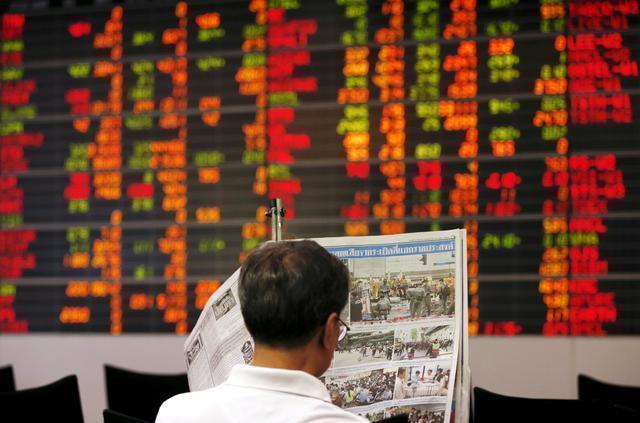Consumer inflation declined in the country for the first time after 18 months. The Consumer Price Index (CPI) rose by 2.88% last month while annual inflation fell from the peak of 85.51% in October to 84.39% in November. However, the monthly inflation continued to increase for 47 months. The domestic producer price index, meanwhile, surged by 0.74% monthly and annually dropped from 157.69% in October to 136.02% last month.
The market expects a rapid decline in annual inflation in December 2022 and January 2023. Annual inflation is forecasted to fall to 70% at the end of 2022 with the base effect while it may further decline to some 40% in March 2023, according to economists. But will people feel the decline in inflation? As economists say, a deceleration in inflation from the second half of 2023 to the beginning of 2024 won’t change the cost of living. They reiterated that the decline would happen with the base effect.
Banks in countries such as Ukraine and Turkey face a “very high” risk from restrictions on capital flows, weak international reserves, and a high level of foreign currency debt, according to the international credit rating agency Moody’s Investors Service. Belarus, El Salvador, Nigeria, Kyrgyzstan, and Tajikistan complete the list of countries also exposed to high levels of dollar deposits, according to the report that covers 39 banking systems in emerging market economies where FX deposits are 10% or more of total deposits. “High dollarization causes multiple problems when the local currency drops sharply in value,” said Moody’s Vice-president and Senior Credit Officer Eugene Tarzimanov. “The banks become vulnerable to an increase in defaults on foreign currency loans granted to unhedged borrowers which hurts the banks’ profitability, while their liquidity and capital can also come under pressure.”
Treasury and Finance Minister Nureddin Nebati presided over the 7th meeting of the Financial Stability Committee. The global and national economic outlook and the general situation in the banking sector and the capital markets were discussed at the meeting.
Turkey’s benchmark stock index ended yesterday at 4,957.77, down 0.10% from the previous close. Borsa Istanbul’s BIST 100 Index lost 5.20 points from Friday’s close with a daily trading volume of TRY 127.2bn. The global equity markets have had a fluctuant course after China eased the COVID-19 measures, according to analysts. They said 4,900-4,950 points will be the support level and 5,000 points will be the resistance level for the BIST 100 index, in technical terms.
DAILY AGENDA
The Central Bank will release the Real Effective Exchange Rate for November (2.30 p.m.).
Meanwhile…
>> The Turkish ready wear exports rose by 5.8% to USD 19.5bn in January-November, compared to the same period of the previous year, according to daily EKONOMI.
>> The Industrial Development Bank of Turkey (TSKB) has inked a USD 200m loan deal with the Asian Infrastructure Investment Bank (AIIB). The amount will be used to finance the climate change-related reduction and adoption investments in line with the Paris Agreement.
>> The Turkish insurance and pension sector has had a total size of TRY 427bn and a premium production of TRY 104.9bn as of the end of 2021, according to Atilla Benli, President of the Insurance Association of Turkey (TSB).
READ A SELECTED ARTICLE FROM OUR MAGAZINE:
>>Tourism is CAD lifeline, but investment is poor
Our Critical Angle Columnist Ismet Ozkul addresses the ongoing decline in tourism investments made by the public and private sectors.










